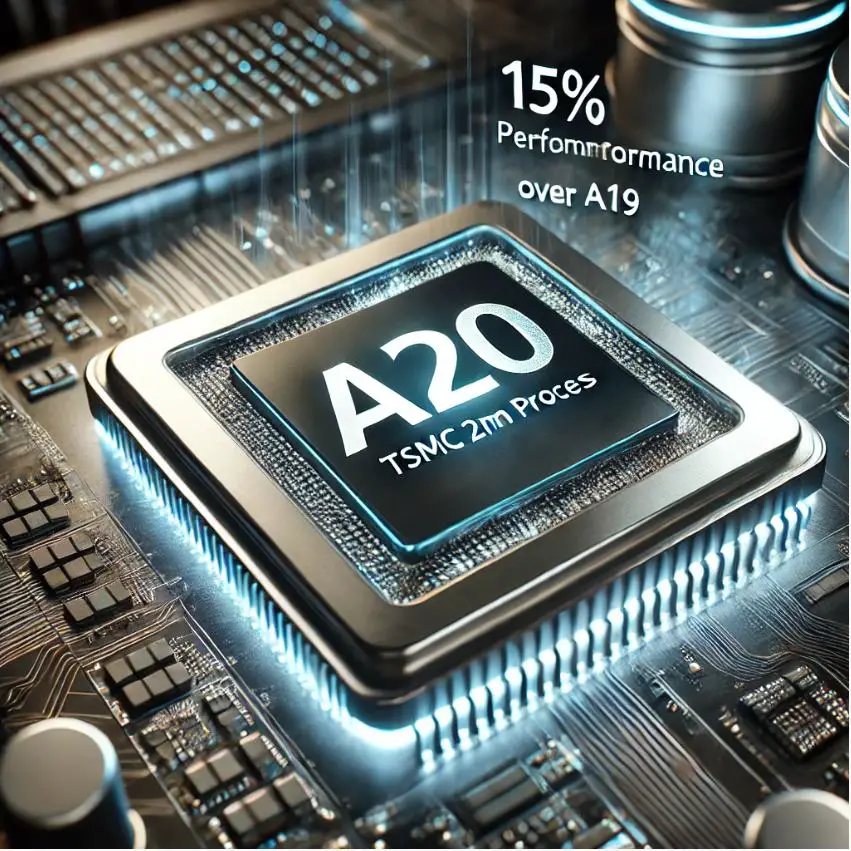
Apple’s next-generation A20 chip is reportedly set to make a significant leap forward by transitioning to TSMC’s advanced 2nm process technology, contrary to previous claims that suggested a more modest upgrade path. According to industry insiders, this new process could deliver performance improvements of approximately 15% over the A19, ensuring that Apple continues to push the boundaries of mobile processing power.
TSMC’s 2nm technology represents a major milestone in semiconductor manufacturing. By reducing the size of transistors, the process not only allows for more components to be integrated into the chip but also enhances energy efficiency. This breakthrough is especially crucial as mobile devices increasingly rely on intensive computational tasks such as advanced machine learning, augmented reality, and complex gaming experiences. With a 15% performance boost, the A20 chip is expected to provide smoother multitasking capabilities, quicker processing speeds, and more robust support for AI-driven applications.
The move to the 2nm process also underscores the longstanding and evolving partnership between Apple and TSMC. Historically, Apple has leveraged TSMC’s expertise in fabricating chips using progressively smaller nodes—from 7nm to 5nm—and now, the 2nm process is poised to further enhance the capabilities of Apple’s custom silicon. However, transitioning to a new process node is not without its challenges. It demands stringent manufacturing precision and seamless integration between design and production. Despite these hurdles, both Apple and TSMC remain optimistic about the successful deployment of the A20 chip.
Industry experts predict that the increased efficiency and performance of the A20 chip will open the door for a new range of applications. Future iPhones and iPads equipped with the chip might soon be able to handle more sophisticated tasks such as enhanced computational photography, improved security features, and immersive AR experiences, which are becoming increasingly important in today’s tech landscape.
While Apple has maintained a tight-lipped stance regarding the complete specifications of the A20, the reported upgrade to TSMC’s 2nm process signals a potentially transformative upgrade in mobile chip technology. As anticipation builds among tech enthusiasts and consumers, the industry awaits further confirmation and the eventual unveiling of the device that will house the revolutionary A20 chip. This advancement not only reinforces Apple’s position at the forefront of technological innovation but also sets a new benchmark for the future of mobile computing.



